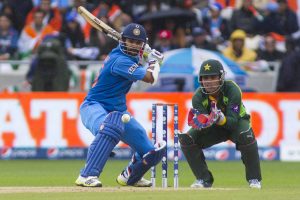The India-Pakistan cricket match held on September 14 in Dubai should have been an ordinary sporting fixture, as one game inside an international tournament. Instead, it ended up setting off a political storm in India. Far from an example of “cricket diplomacy” – a symbolic act of regional engagement – it became another moment of confrontation that only deepened mistrust.
This tells us something important about India-Pakistan relations, even the most limited form of people-to-people contact, which in the past was treated as a confidence-building measure, is now being met with outrage and political exploitation. The political cost of engagement with Pakistan has grown so heavy that even symbolic gestures are cast as betrayals. In that sense, cricket has begun to matter in ways that have little to do with the scoreboard.
For two nuclear-armed states with disputed borders and almost no functioning crisis communication channels, every opening for dialogue – whether direct or indirect – carries strategic weight. When even a multilateral sporting event becomes politically toxic, it raises serious doubts about the future of any engagement. At a time when military technologies are accelerating and the margins for diplomacy are shrinking, de-escalation has to begin not only in private backchannels but also in the public domain. Indian political parties, above all, face the responsibility of not turning every point of contact into a battlefield for domestic politics.
Ahead of the match, boycott calls spread quickly. Several Indian leaders framed the game as a national security issue, stripping it of its sporting character. The opposition Congress Party organized protests in Delhi, questioning the logic of continuing sports diplomacy with Pakistan.
Arvind Kejriwal of the Aam Aadmi Party went further, saying on X that “playing a match with Pakistan is a betrayal of the country.” Referencing the perception that the U.S. president had forced India to declare a ceasefire with Pakistan back in May, Kejriwal equated this to the cricket match: “Is this also being done under Trump’s pressure?”
Statements like these reveal a deeper change in political rhetoric, one in which even the smallest gestures toward Pakistan are cast as threats to national identity.
One particular moment highlighted how far things have shifted. The Indian captain, Suryakumar Yadav, shook hands with the chairman of the Pakistan Cricket Board, a routine courtesy, but he and the entire Indian team avoided shaking hands with their Pakistani counterparts before and after the match.
The PCB lodged a complaint with the International Cricket Council, alleging violations of the body’s code of conduct.
The incident might appear minor, but it suggests that professional athletes are beginning to feel political pressure so strongly that they hesitate to perform basic acts of sportsmanship. A handshake, once no more than a formality, is now seen through a nationalist lens. “I feel a few things in life are ahead of sportsmanship,” Yadav said afterward. “…[W]e stand with all the victims of the Pahalgam terror attack.”
When even a courtesy on the field is politicized, it shows how little space remains for civility in India-Pakistan relations.
The Indian government tried to separate sport from politics. Union Minister Manohar Lal defended participation, saying that a cricket match and Operation Sindoor – when India launched cross-border strikes to retaliate for the Pahalgam attack – are two “different issues.” He argued that it would be unfair to players who had trained for years if politics took away their chance, and he stressed that the decision had been taken “thoughtfully.”
His words fit within a longer tradition in India of trying to keep sport outside of statecraft. Yet this argument was quickly drowned out. The public mood and political discourse were already tilted toward performative nationalism.
Even institutions that should remain apolitical bent under pressure. Senior Board of Control for Cricket in India (BCCI) officials skipped the match entirely, despite having no need to court voters. One BCCI official told Indian media, “If we appear on camera during the match, attempts would be made to create an atmosphere against us.”
If cricket officials cannot be present at a match without facing backlash, then how much more difficult would it be for political leaders to justify substantive dialogue with Pakistan? Symbolic gestures have turned strategic, and professional interactions are now radioactive.
This collapse of space for engagement comes at a dangerous moment. South Asia is already experiencing structural instability. Both India and Pakistan are bringing in new military technologies: AI-enabled surveillance, long-range precision missiles, and hypersonic systems. These innovations compress decision timelines and leave less room for error, increasing the risk of escalation through miscalculation. Yet the two countries share only one direct crisis hotline. Even the Indus Waters Treaty, once the last pillar of cooperation, is now weakened, with India unilaterally suspending the treaty after the Pahalgam attack.
Cricket, once hailed as soft diplomacy, now lays bare the fragility of confidence-building in the region. Public perceptions have hardened to the point that even handshakes are suspect. That erosion of basic civility matters because it signals that formal negotiations are unwelcome and even informal gestures are forbidden.
Political parties in India, particularly those in opposition, seem to see Pakistan only as a tool for scoring quick points at home. What might help win votes today risks weakening the very stability that South Asia needs tomorrow.
If India and Pakistan cannot accept being on the same cricket pitch, how can they ever move forward on the difficult issues – Kashmir, water-sharing, counterterrorism – that demand patience and dialogue?

































